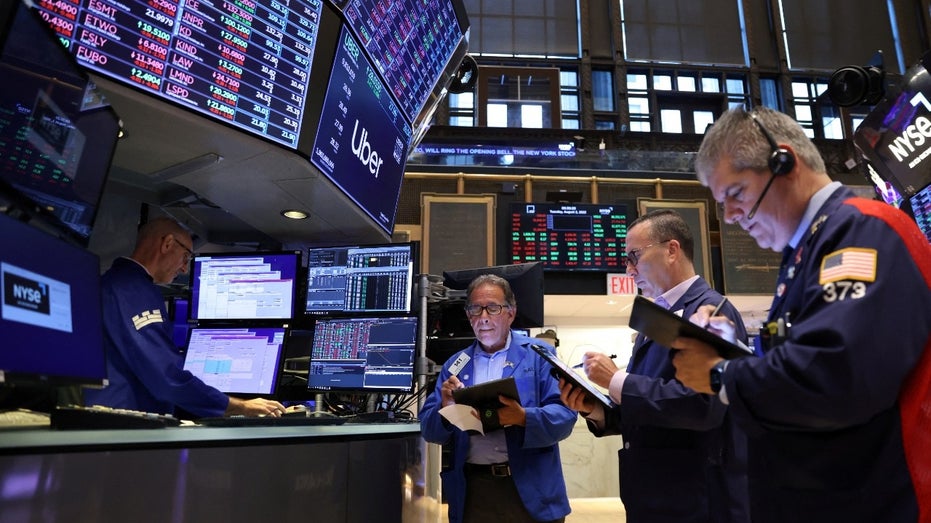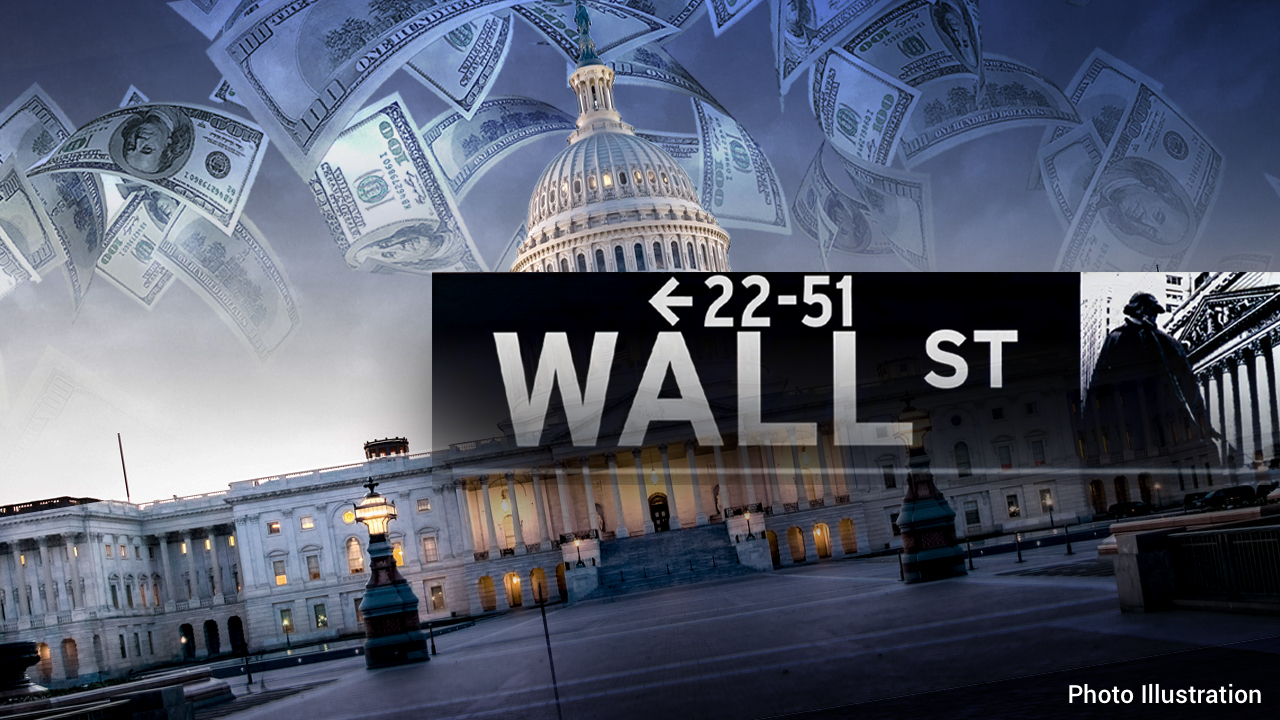ETFs to play around the debt default risk
An ETF's ability to improve diversification is key in a volatile market: Financial expert
Rep. Kevin McCarthy on concerns surrounding a debt ceiling deal: 'I don't want to have a Biden default'
House Speaker Kevin McCarthy, R-Calif., discusses where Republicans stand on debt ceiling negotiations as a default looms, and weighs in on the future of A.I. regulations.
The country is awaiting updates from the White House and Congress on news of the debt ceiling, and with a potential default possible, exchange-traded funds, or ETFs, could be an investment choice to consider.
ETFs are baskets of securities traded on exchanges that may offer investors greater diversification, less risk and fewer fees.
Why are ETFs smart investment choices during uncertain market conditions?
David Nicholas, the founder of Nicholas Wealth Management, says diversification is key.
"In an economic slowdown, single stocks can carry outsized risk," Nicholas tells FOX Business. "The benefit of an ETF is that investors can have broad diversification across multiple sectors and asset classes. This allows investors to stay invested but spread out their risk."

Traders work on the floor at the New York Stock Exchange (NYSE) in Manhattan on Aug. 2, 2022. (Reuters/Andrew Kelly / Reuters)
With no deal and the deadline looming, and risk is already on, what ETFs would you suggest to choose?
WHAT DO RETAIL INVESTORS NEED TO KNOW ABOUT AI INVESTING?
Roxanna Islam, associate director of research at VettaFi, says investors should focus on their long-term investments rather than panic sell during uncertain or volatile markets.
"Broad U.S. market ETFs like the Vanguard S&P 500 Index Fund tend to be relatively stable in the long-term despite short-term market events," Islam tells FOX Business.
Also, she says, investors are expecting volatility across both debt and equity markets, so many investors are becoming more defensive and looking for safety in large-cap quality or low volatility.
"These include ETFs like the Invesco S&P 500 Low Volatility ETF or the iShares MSCI USA Quality Factor ETF. Investors may also consider commodity ETFs such as the SPDR Gold Shares since commodities like gold tend to be less sensitive to market movements," Islam says.
| Ticker | Security | Last | Change | Change % |
|---|---|---|---|---|
| VOO | VANGUARD S&P 500 ETF - USD DIS | 635.22 | +12.11 | +1.94% |
| SPLV | INVESCO EXCHANGE TRADED FD TR II S&P 500 LOW VOLATILITY ETF | 74.86 | +0.18 | +0.24% |
| QUAL | ISHARES TRUST MSCI USA QUALITY FACTOR ETF | 203.68 | +4.37 | +2.19% |
| GLD | SPDR GOLD SHARES TRUST - USD ACC | 455.37 | +13.34 | +3.02% |
Additionally, Arthur Laffer Jr., president of Laffer Tengler Investments, says that if you think the debt negotiations are going to either last a long time or actually result in a default, then you should expect U.S. Treasury yields to rise in order to price in increased default premium.
"If that is the case, you either want to be very short maturity like iShares Treasury Floating Rate Bond ETF or VanEck IG Floating Rate ETF, so as to limit exposure to rates rising or use an ETF that strictly benefits from rates rising like ProShares Short 20+ Year Treasury or ProShares UltraShort 20+ Year Treasury 2x, which both benefit from interest rates rising for long-dated Treasurys. These last two ETFs utilize shorting and also leverage," says Laffer.

The Department of the Treasury building in Washington, D.C., on Aug. 29, 2022. (Daniel Slim/AFP via Getty Images / Getty Images)
How do ETFs reduce risk and complement an existing portfolio?
The primary way to reduce risk is through diversification, says Nicholas. "The second way is to own an ETF that is actively managed," he says. "The value of active management can really shine when investing in a bond ETF."
VANGUARD NARROWS ETF GAP WITH BLACKROCK
Also, he says, for many investors trying to buy bonds it can be somewhat of a complicated process.
"You have to be able to understand the par value, whether it is callable, what the yield is and what the maturity is," Nicholas tells FOX Business. "Investors who purchase a bond ETF for example, don't need the expertise of selecting the appropriate bonds because it is the bond fund manager's responsibility to make those decisions."
How do ETFs mitigate risk, especially in the debt default scenario?
CLICK HERE TO GET THE FOX BUSINESS APP
ETFs can help investors maintain their long-term investment goals and avoid making rash decisions in the case of a debt default scenario or any other short-term market event, says Islam.
"Psychologically, it can be easier for investors to hold professionally managed ETFs rather than attempting to time the market with individual securities and potentially risk locking in losses," she says.




















